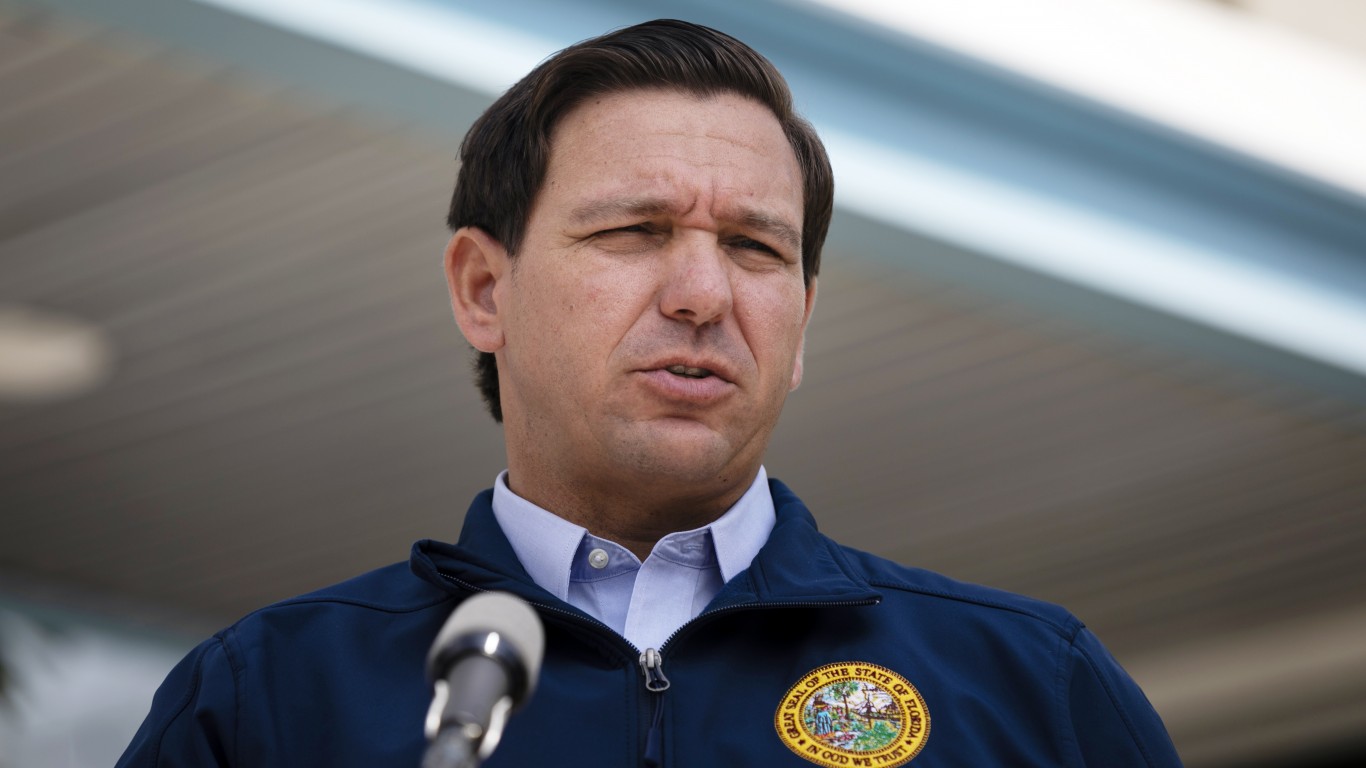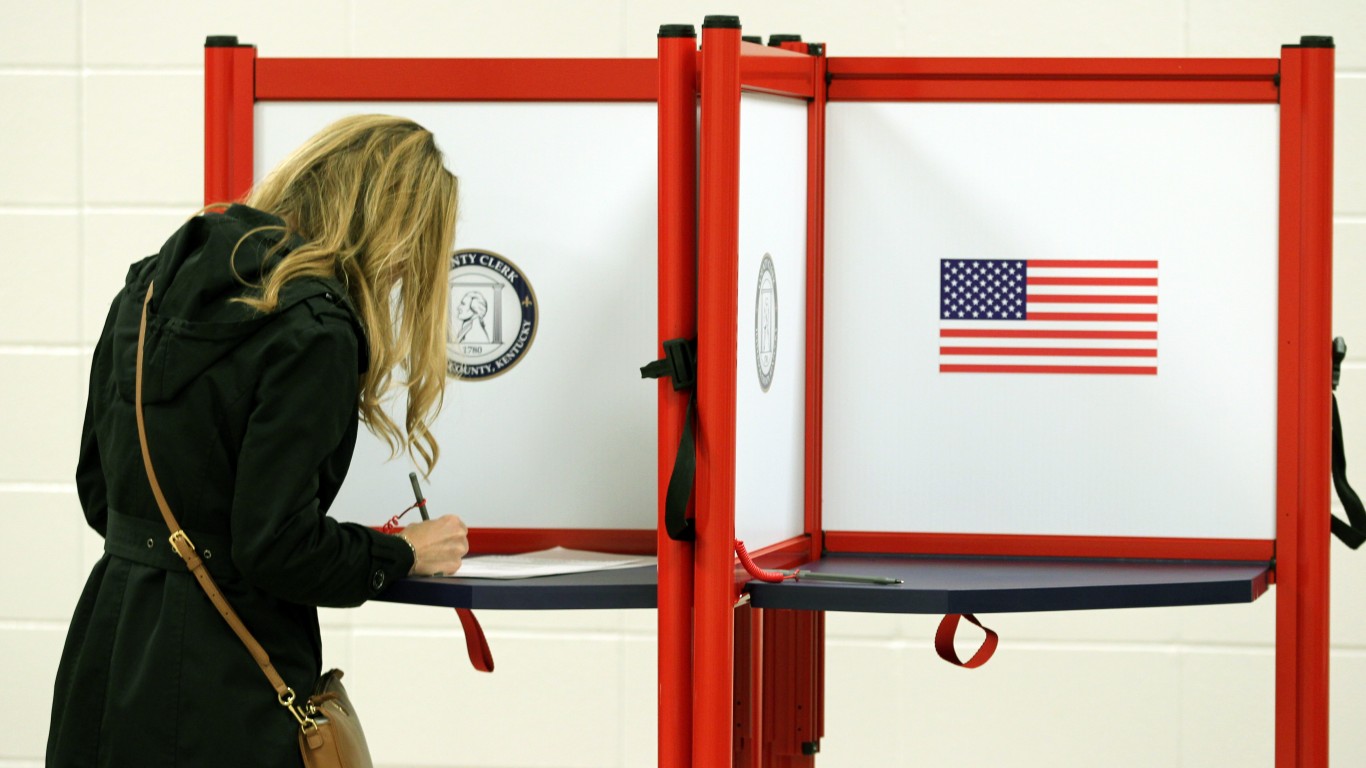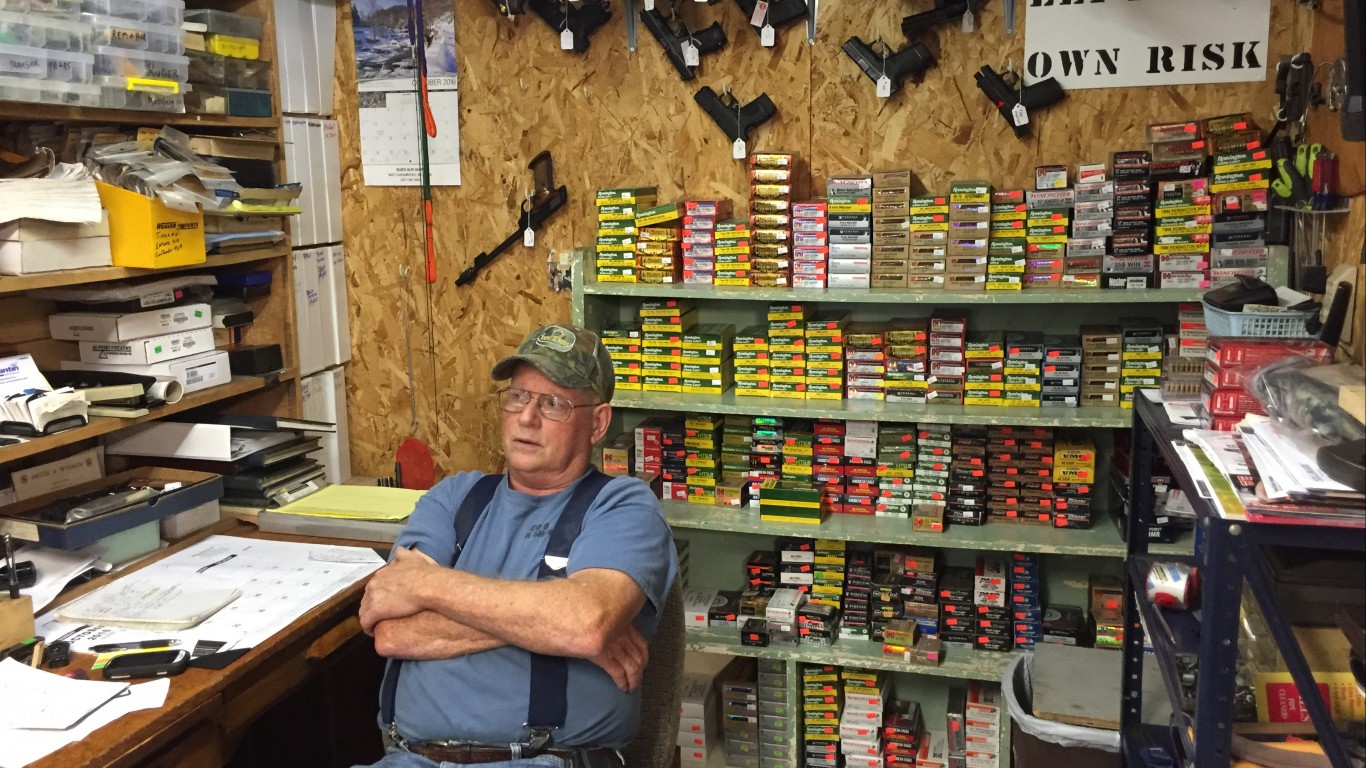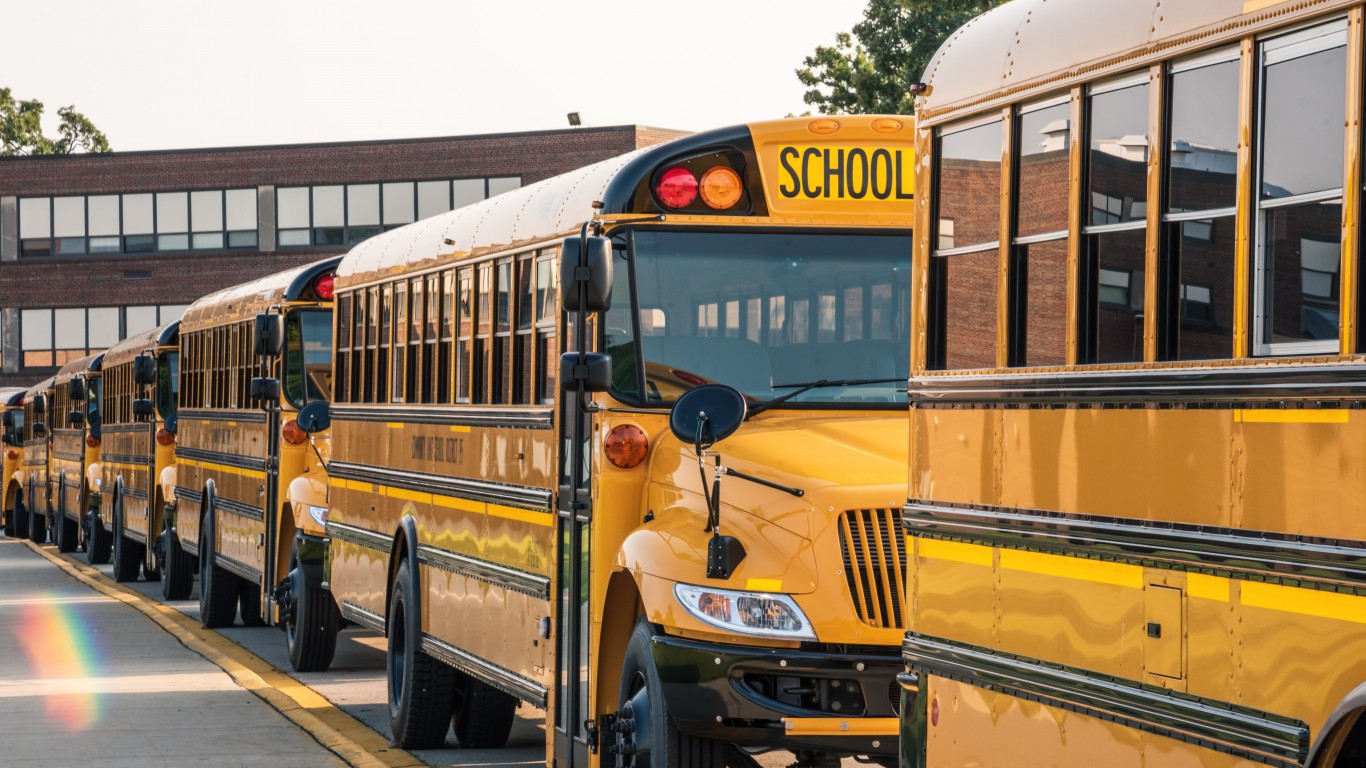
Trust in public institutions, such as schools, courts, police, and legislative bodies, is crucial to maintaining social stability. A deterioration of trust in organizations that play vital roles in maintaining public safety and wellbeing can lead to simmering political, racial, and class divisions at best and, at worst, eruptions of social unrest and violence.
A Gallup survey sought to measure the level of confidence Americans have toward 16 large institutions, and the results aren’t great. Only two institutions on the list garnered “a great deal” or “a lot” of trustworthiness above 70%, while three of them received confidence levels below 20%. Nine of these 16 institutions were ranked at or below the overall average of 38%.
The survey also looked at public perceptions between non-Hispanic whites and non-Hispanic blacks. The widest spreads between the two race categories were found in the trust they put in police and the presidency. Whites ranked those two institutions above trust in churches and public schools while black Americans put trust in the presidency and the police near the bottom, along with the criminal justice system. (Here are the cities where the police shoot the most people).
Confidence in the private sector shows one of the more interesting survey results. Survey respondents said they considered small businesses as the most trustworthy institution in the country, but rank big businesses — such as publicly traded multinational corporations — among the least trustworthy. (These are the companies with the best and worst reputations.)
Click here to see the most and least trusted institutions in America
To identify the most and least trusted American institutions, 24/7 Wall St. reviewed the results of a Gallup poll of 1,226 U.S. adults 18 and older, living in all 50 states and the District of Columbia, conducted between June 8 and July 24, 2020. Institutions are ranked on the share of adults who have “a great deal” or “quite a lot” of confidence in the institution in question. Institutions are ranked from most to least trusted.

16. Small business
> Population with high-confidence in the institution: 75% of adults
A survey from public relations firm Edelman concluded that business is, globally, the most trusted institution in society. However, this Gallup poll suggests small businesses are carrying most of the weight of this trustworthiness while big businesses are among the least trusted institutions in the United States. Only small businesses and the military have a high-confidence level above 70% in this survey.
[in-text-ad]
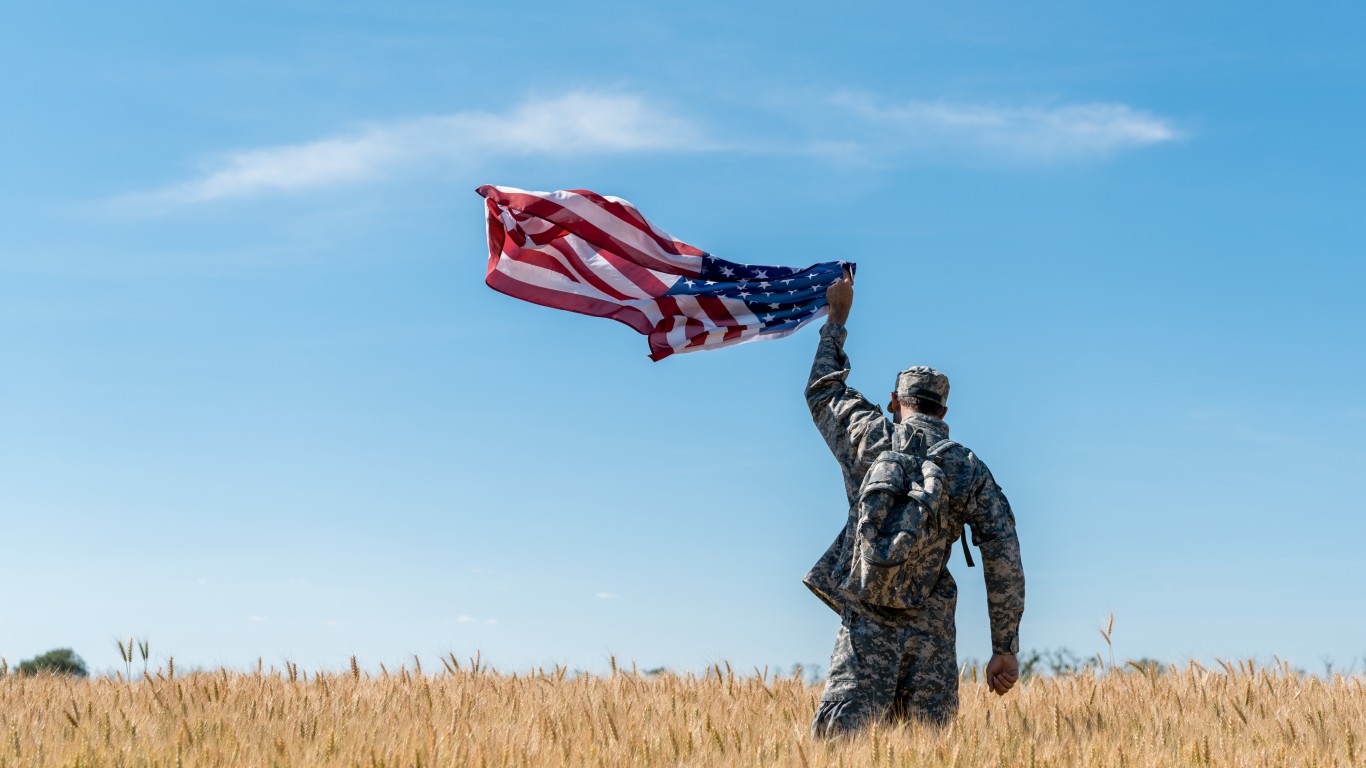
15. The military
> Population with high-confidence in the institution: 72% of adults
Different surveys suggest a majority of Americans consider the U.S. military one of the most trustworthy institutions in the country. Last year, an online poll of more than 1,000 Americans by SafeHome.org, found that 70% of respondents trust U.S. soldiers more than judges and police. A poll of more than 2,500 people by the Reagan Institute earlier this year found 56% of Americans have a “great deal of trust and confidence” in the U.S. military.

14. The medical system
> Population with high-confidence in the institution: 51% of adults
Many Americans may not trust the for-profit health insurance system through which most get access to medical care, but Gallup suggests a slight majority of adults consider the medical system itself to be trustworthy. A Pew Research Center survey of more than 4,000 adults in January 2019 found that 74% of respondents had a “mostly positive” overall view of medical doctors.
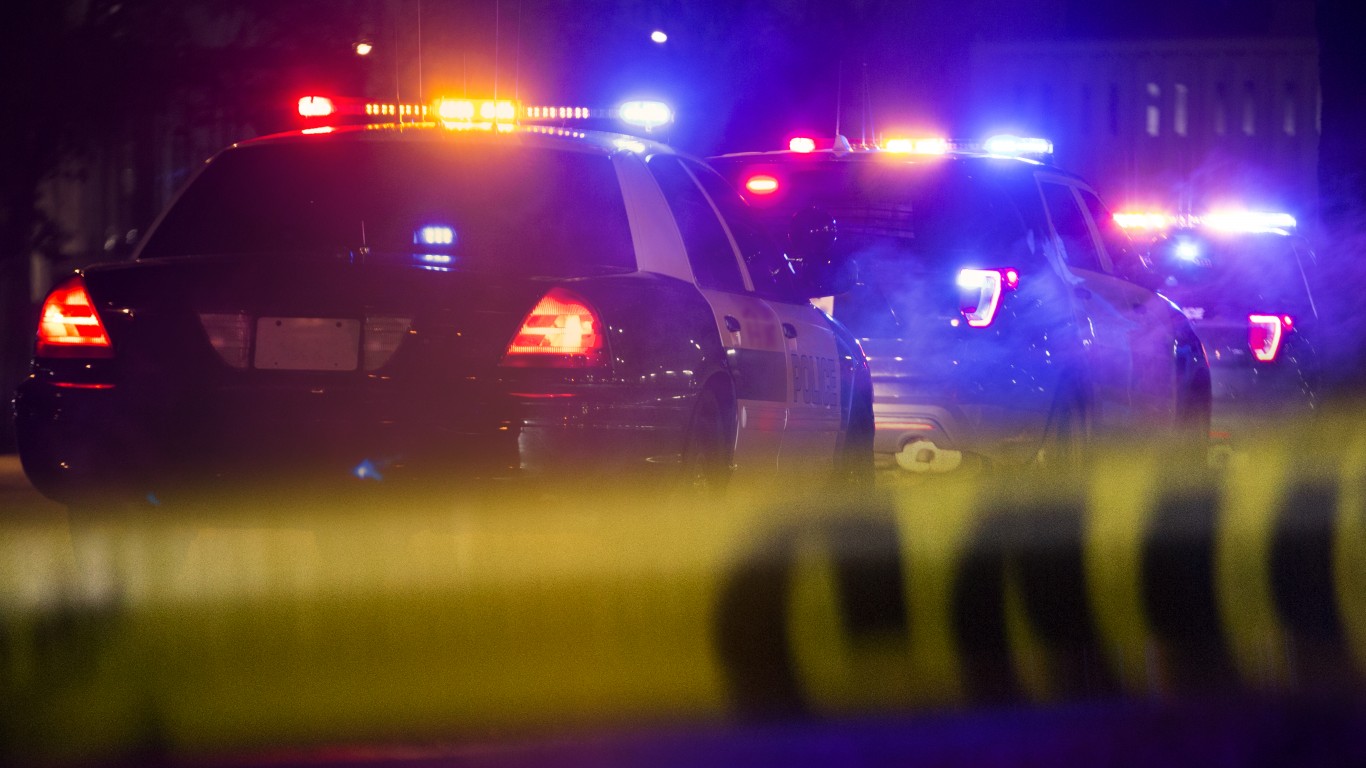
13. The police
> Population with high-confidence in the institution: 48% of adults
Trust in law enforcement officers has one of the widest racial disparities in this Gallup poll, with 56% of non-Hispanic whites putting “a great deal” or “quite a lot” of trust in police officers compared to just 19 percent for non-Hispanic blacks. Whites placed police in 3rd place among 16 institutions, while blacks ranked them in 13th place.
[in-text-ad-2]
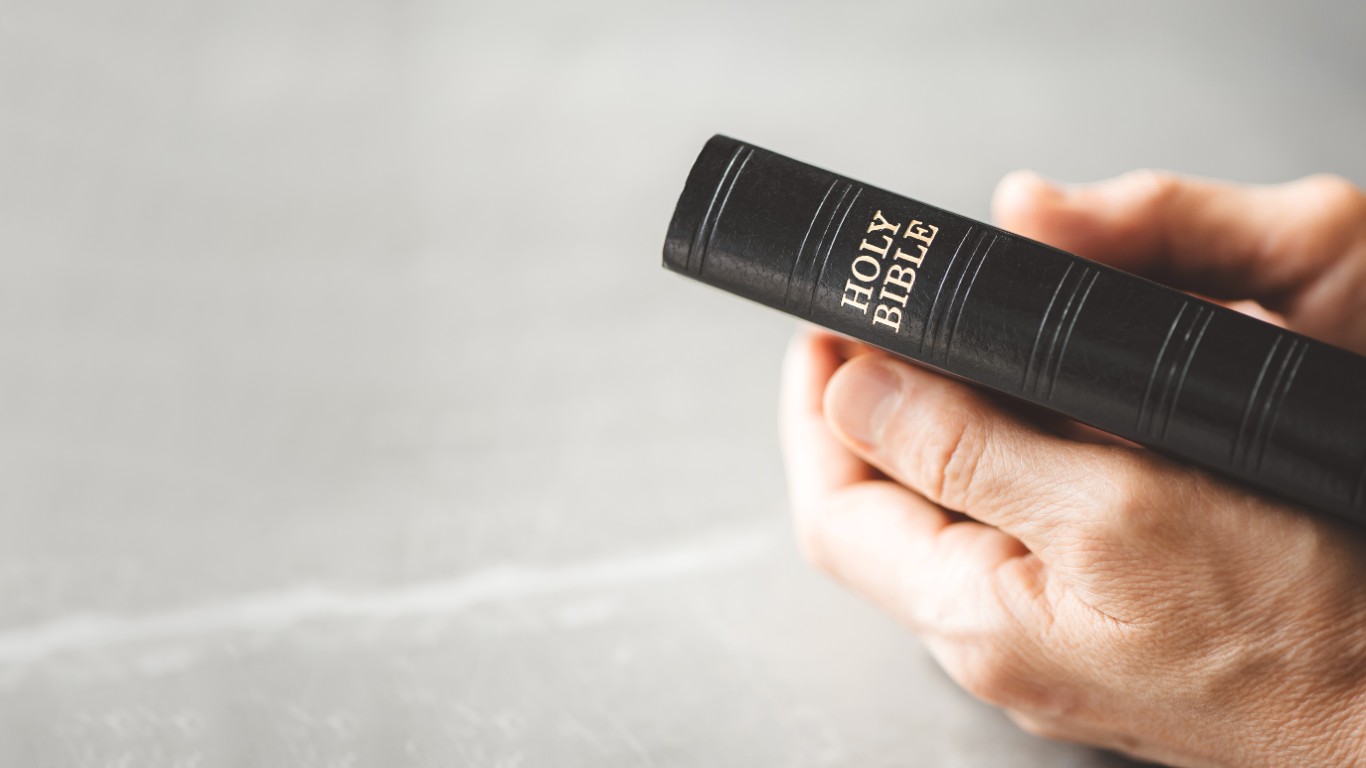
12. The church or organized religion
> Population with high-confidence in the institution: 42% of adults
Religious institutions receive fairly high trustworthiness in this Gallup ranking, but there’s been a downward trend over the decades. In 1975, Gallup found that 68% of polled Americans had “great deal” or “a lot” of confidence in organized religion. That confidence fell below the majority level for the first time in 2002.

11. Public schools
> Population with high-confidence in the institution: 41% of adults
Among the 16 institutions included in this survey, public schools received slightly above average levels of “a great deal” or “a lot “of trustworthiness. A survey by Education Week of more than 2,000 parents of K-12 public and private school students found that half of respondents put “somewhat high to high” trust in a school’s ability to safeguard students from the Covid-19 virus, while 30% had “low to nonexistent” trust.
[in-text-ad]
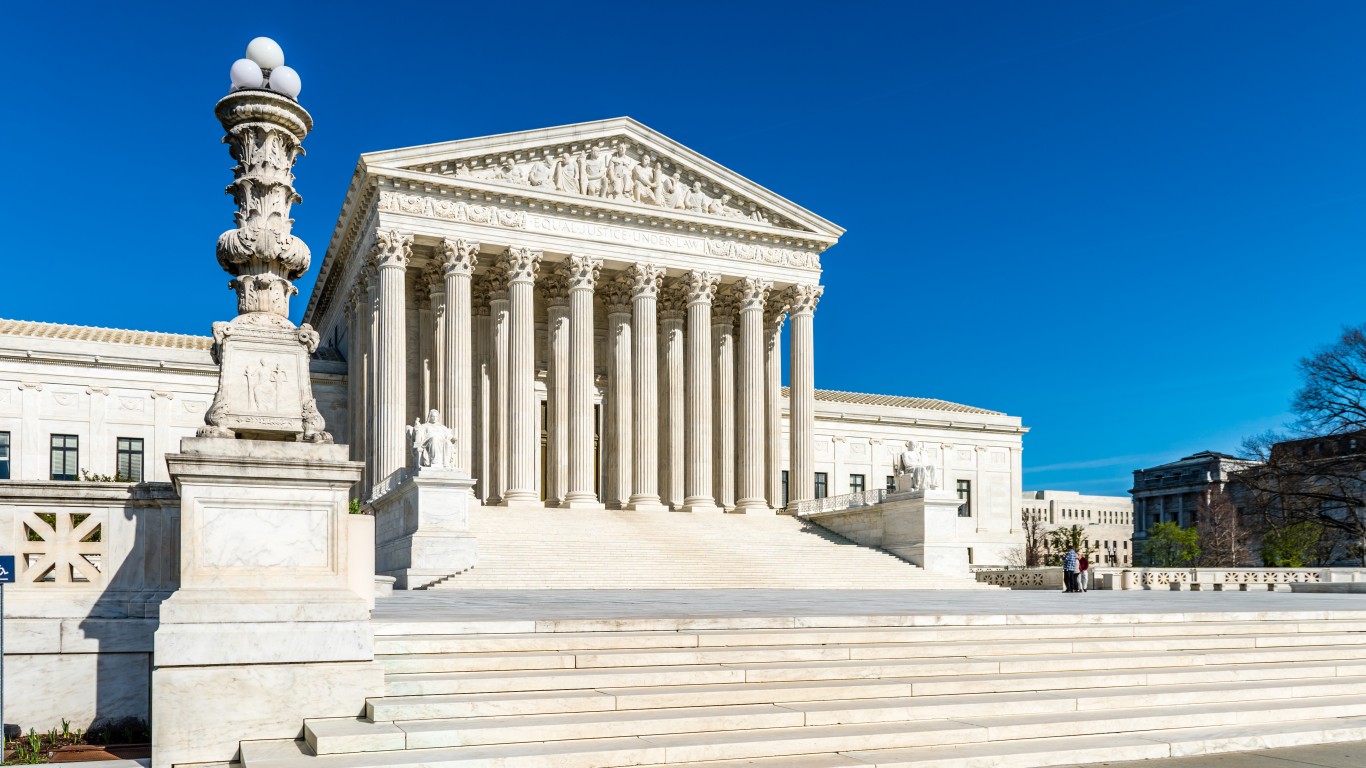
10. The U.S. Supreme Court
> Population with high-confidence in the institution: 40% of adults
Trust in the U.S. Supreme Court tends to be issues-based, and as the highest court in the land enters a new era with an expanded conservative majority, trust in the court may line up along ideological lines. Nevertheless, a 40% trustworthiness rating in this Gallup poll, along with a Reuters/Ipsos poll showing strong support for term limits, suggests the Supreme Court is viewed with a tepid level of trustworthiness by the general public.
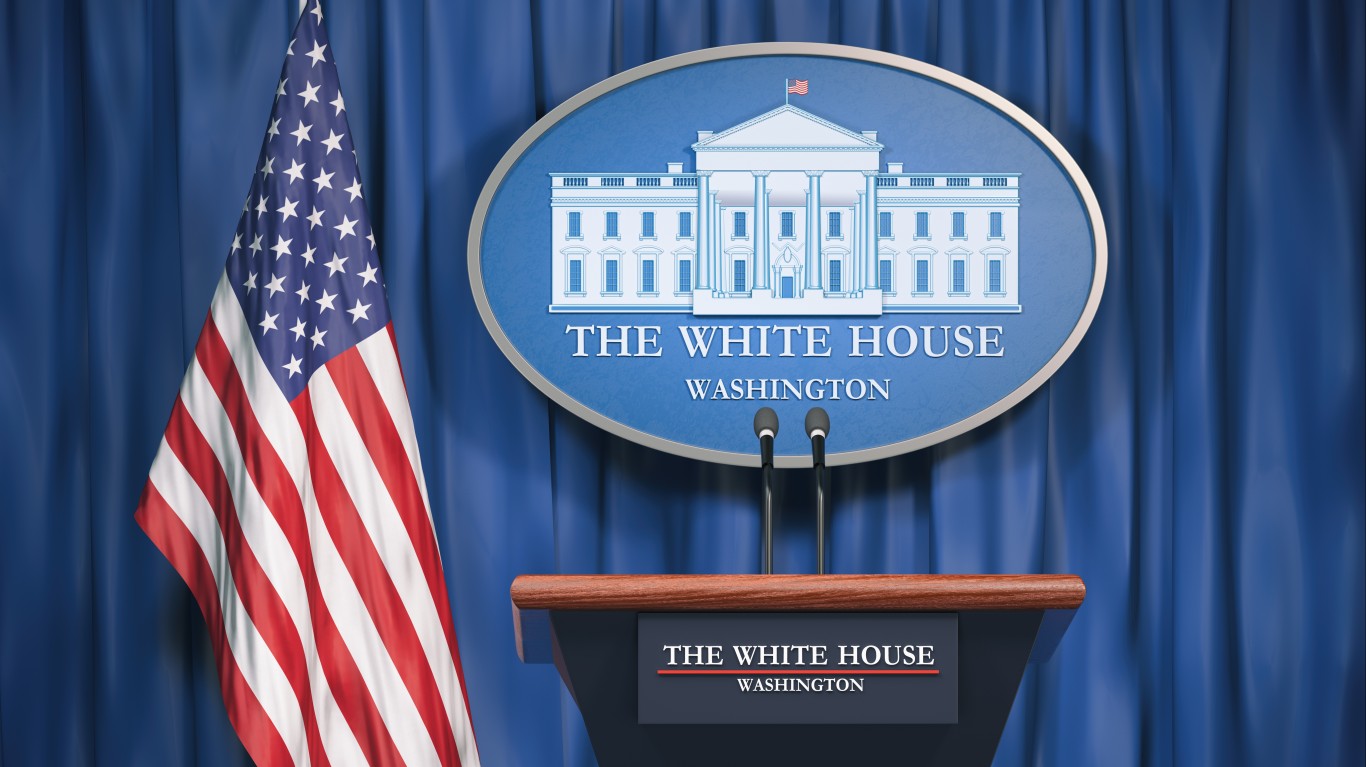
9. The presidency
> Population with high-confidence in the institution: 39% of adults
Along with police, the presidency has one of the widest spreads between whites and blacks. This Gallup survey found that non-Hispanic whites trust the president more than religious institutions while only 13% of non-Hispanic blacks place a high degree of trust in the White House. A USA Today/Suffolk University survey in April 2020 found that 30% of respondents found President Donald Trump trustworthy, but that figure rose to 78% among respondents who said Fox News was their top news source.
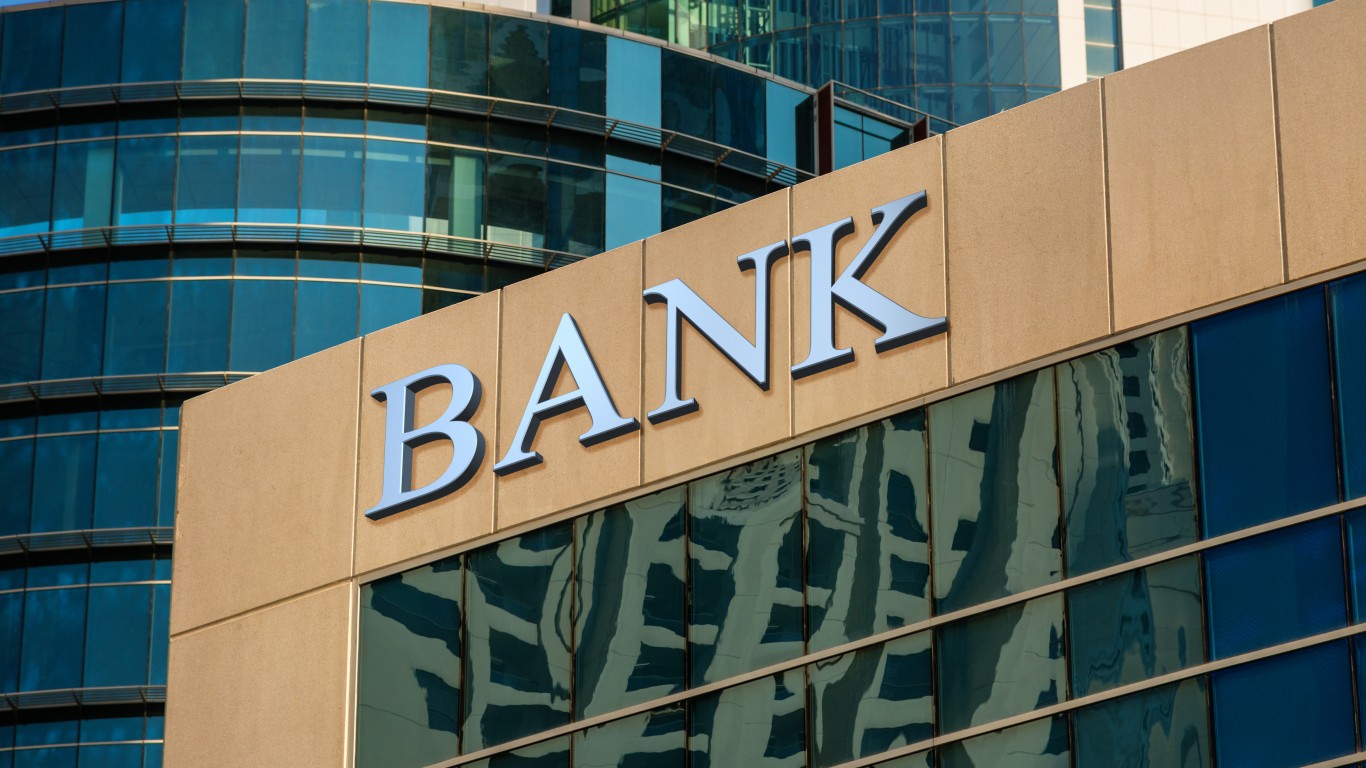
8. Banks
> Population with high-confidence in the institution: 38% of adults
Trustworthiness of banks sits in the middle in the Gallup survey. The 16 institutions named in the poll found that only 38% of respondents assign a great deal of trust on average, which puts banks in the statistical middle of this survey. Non-Hispanic blacks trust banks even less, which should be no surprise considering a legacy of racist practices in the financial system, such as redlining. A separate Gallup survey from 2016 found less than 30% of Americans put a lot of trust in banks, up from a series low of 22% amid the 2009 financial collapse.
[in-text-ad-2]
7. Large technology companies
> Population with high-confidence in the institution: 32% of adults
Big Tech has caught heat in recent years for alleged anti-competitive strategies and surveillance-capitalism business models, and it now faces the prospect of an emboldened antitrust effort from both the Biden administration’s Federal Trade Commission and Republican politicians who believe social media companies censor conservative views. While the survey found more trust of big tech companies by non-Hispanic blacks, less than a third of both whites and blacks place a lot of trust in this industry.
6. Organized labor
> Population with high-confidence in the institution: 31% of adults
Union membership continues to decline, hovering around one in 10 U.S. workers. The figure falls into single digits if you exclude public-sector unions. The explanation for why union power in the U.S. has plummeted generally falls along ideological lines in the ongoing struggle between the rights of labor and the freedom of capital. This Gallup survey suggests organized labor institutions need to do much more to build public trust.
[in-text-ad]

5. Newspapers
> Population with high-confidence in the institution: 24% of adults — tied
Amid an online glut of click-baiting, misleading headlines, reductive hot takes, opinion pieces, and accusations of bias coming from all directions, it’s no surprise the news media isn’t considered trustworthy by many people. Only about a fourth of respondents to this Gallup survey put a lot of trust in newspapers — though TV news networks (see below) are trusted even less.
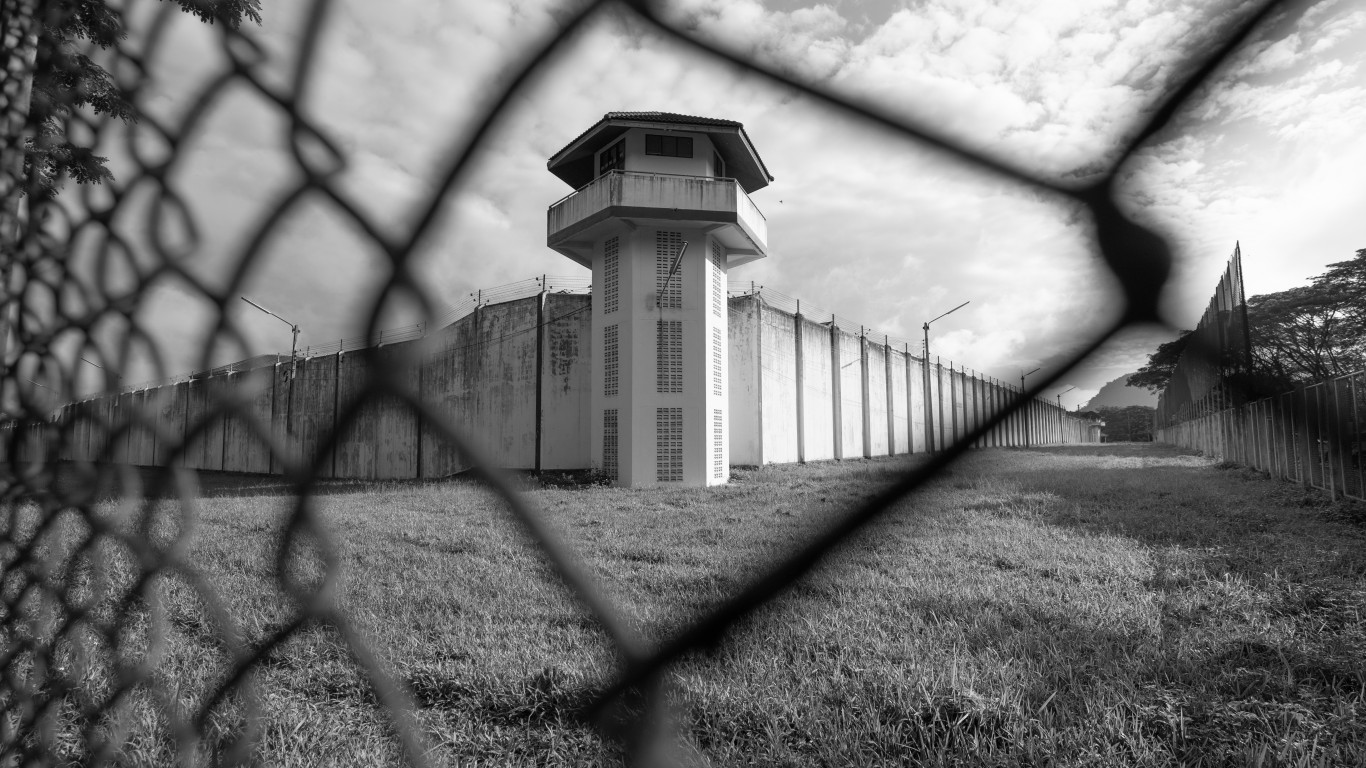
4. The criminal justice system
> Population with high-confidence in the institution: 24% of adults — tied
While non-Hispanic whites place much more trust in police officers than non-Hispanic blacks in this survey, the racial gap is much narrower between the races when it comes to trustworthiness of the overall criminal justice system. Black Americans put far less trust in the system compared to whites, but only 24% of whites put a lot of trust in the justice system compared to 48% who put a lot of trust in police.

3. Big business
> Population with high-confidence in the institution: 19% of adults
In May, the financial press heralded business as the most trusted institution in society, based on a global survey by public relations firm Edelman. However, Gallup suggests that there’s a big difference between the trustworthiness of small business compared with large ones. Your neighborhood grocery store might be trusted, but publicly traded global corporations? It’s not even close.
[in-text-ad-2]

2. Television news
> Population with high-confidence in the institution: 18% of adults
Newspapers might be facing trust issues, but TV news is considered even less trustworthy, according to this Gallup poll. TV news networks is one of the three institutions in this survey, along with big business and Congress, that garner less than a 20% high-confidence rating. A 2019 survey of more than 2,000 adults by Morning Consult and The Hollywood Reporter, only network news (CBS, NBC and ABC) was considered credible by at least 60% of respondents.

1. Congress
> Population with high-confidence in the institution: 13% of adults
Trust in Congress tends to rise and fall depending on one thing above all else: the perception of gridlock. When Congress is viewed as helping average people, it’s viewed more favorably. When Congress passed the $900 billion Covid-19 pandemic relief package in December, its public approval shot up. But such bursts of approval are short lived, and according to this Gallup survey, federal lawmakers are the least trusted group of these 16 institutions.
100 Million Americans Are Missing This Crucial Retirement Tool
The thought of burdening your family with a financial disaster is most Americans’ nightmare. However, recent studies show that over 100 million Americans still don’t have proper life insurance in the event they pass away.
Life insurance can bring peace of mind – ensuring your loved ones are safeguarded against unforeseen expenses and debts. With premiums often lower than expected and a variety of plans tailored to different life stages and health conditions, securing a policy is more accessible than ever.
A quick, no-obligation quote can provide valuable insight into what’s available and what might best suit your family’s needs. Life insurance is a simple step you can take today to help secure peace of mind for your loved ones tomorrow.
Click here to learn how to get a quote in just a few minutes.
Thank you for reading! Have some feedback for us?
Contact the 24/7 Wall St. editorial team.
 24/7 Wall St.
24/7 Wall St.
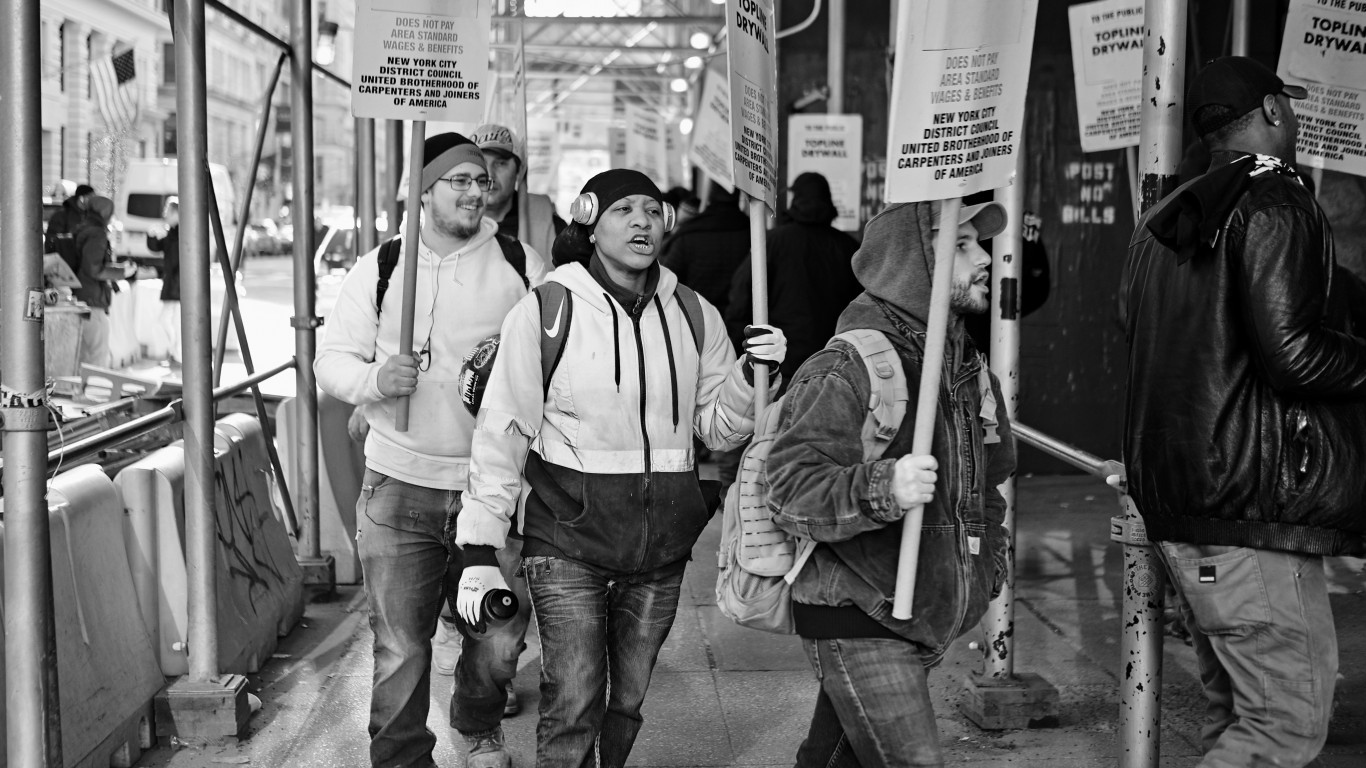
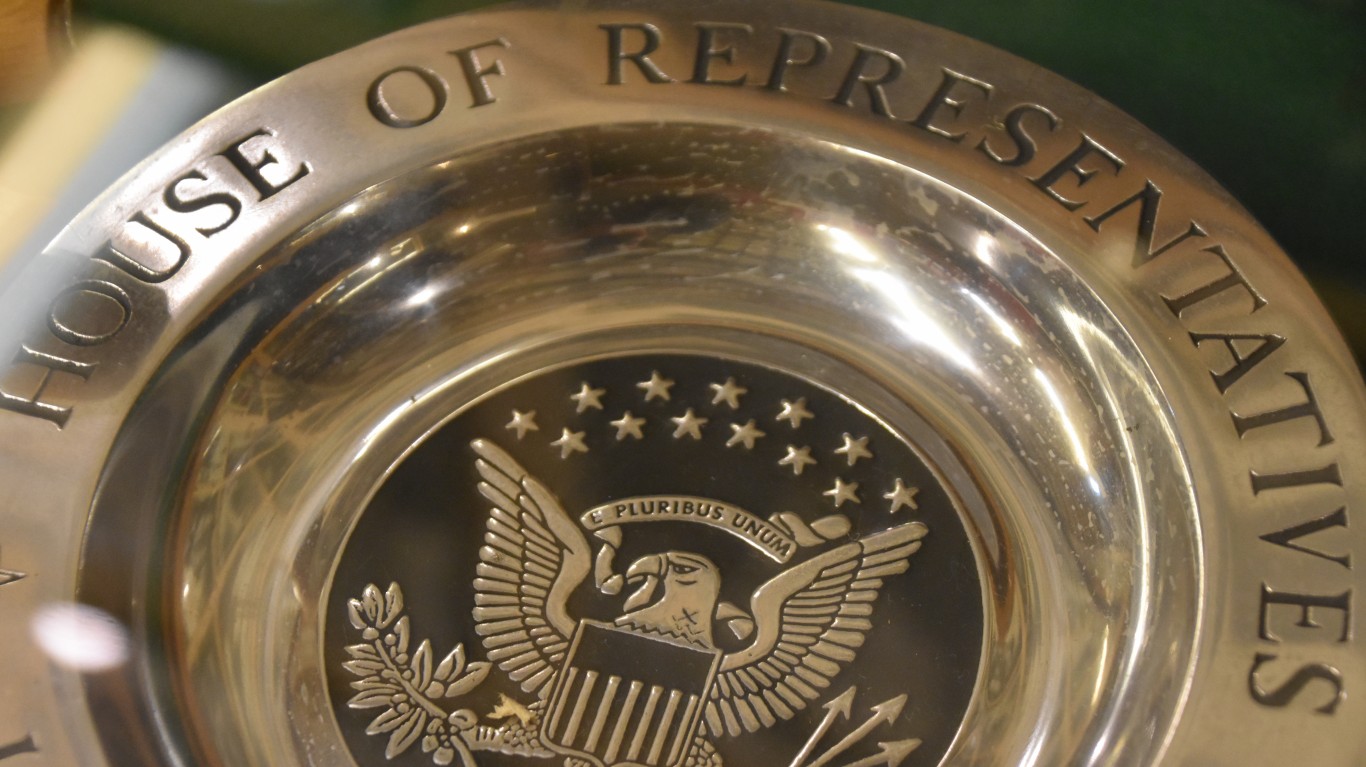 24/7 Wall St.
24/7 Wall St.